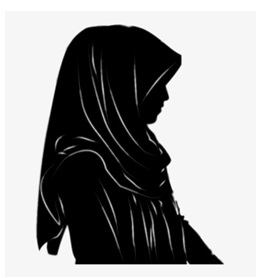Letters to the Editor
Q: Can a Muslim wear a tie? If no, why? Explain fully.
YMD
A Muslim can wear a tie, there is no restriction about it. It is only complete imitation leading to doubts about the Islamic identity of a person that is prohibited. For example, if one wears a complete suit, but sports a Muslim beard, by which he can be recognized as a  Muslim, then that would not be objectionable. The Prophet himself wore a Roman shirt on one occasion.
Muslim, then that would not be objectionable. The Prophet himself wore a Roman shirt on one occasion.
An additional condition is that the wearer may not feel proud of the dress, say a tie. If he does, it is prohibited. The Prophet has said, “Whoever let down his lower garment below the ankle out of pride, will not enter Paradise.” The hadith states a principle.
Nevertheless, it may be remembered that firstly, the tie was originally supposed to be a cross on the breast. It underwent changes to become what it is now. Secondly, with the tie goes a culture: Western culture. The reason why multinational companies (which are mostly Western) insist on their senior staff its use. Thirdly, it suits Western climate. We have seen many people sweating themselves out foolishly in the tropical climate of the east.
Finally, a Muslim has a personality of his own, in the development and manifestation of which he is not influenced by cultures other than Islamic, especially those that are inimical to Islam.
What we mean by the above statement is that a Muslim has a forceful personality, which he thrusts forward in the face of his competitors, rivals, or antagonists, to make a place for himself. To achieve this, he does not depend on a particular kind of dress or other cultural expressions? The strength of his personality speaks for him and speaks forcefully. He impresses and is not impressionable.
On the contrary, if a personality is weak, inner strength lacking, and self-confidence of low order, then, such a person can be stopped from progressing by the first hurdle, no matter what he wears to please others.
Q: Can a Muslim (male) offer his Fard Prayers at home? Explain with a hadith.
YMD
No, as regular practice it is not allowed for a Muslim male to do his Prayers at home. He must do them at the mosque, five times a day. The Prophet and his Companions, to the last man, did their five daily Prayers in the mosque, without fail, without exception.
It is only hypocrites who stayed back. Hence the Prophet once remarked, “I wish to let the Prayers begin, and then go around and burn down the houses of those who do not join in the congregation.” Now, since the life and property of a Muslim are consecrate, the Prophet obviously had the hypocrites in mind, who are not Muslims.
Q: Can Muslim women drive a car or a vehicle?
YMD
Yes, a Muslim woman can drive a car, if she does it observing the rules of hijab.
Q: What is the punishment for a woman who goes about without Purdah?
YMD
 Firstly, it should be remembered that there is a difference in opinion over what exactly is hijab. The majority of the Salaf and Khalaf thought that it includes the face, the hands and feet, in short, the whole of a woman’s body, save an eye, or maybe both. But one or two stray opinions of the Salaf was that the face is excluded. (Hands and feet were included by them also).
Firstly, it should be remembered that there is a difference in opinion over what exactly is hijab. The majority of the Salaf and Khalaf thought that it includes the face, the hands and feet, in short, the whole of a woman’s body, save an eye, or maybe both. But one or two stray opinions of the Salaf was that the face is excluded. (Hands and feet were included by them also).
Now, if an Islamic government enforces one or the other, that becomes binding on women. Further, it is the Islamic government that will suggest punishment for those who disregard the rule.
Q: What about women who show their bodies?
YMD
Such women as show their bodies will face a stiff penalty in the Hereafter. The Prophet has said, “Such women will appear (among the Muslims) who will be covered but uncovered, their heads like camel’s hump. They will not enter Paradise, nor even smell its fragrance although its fragrance can be felt from such and such (a great) distance.”
By “heads like camel’s hump,” the Prophet meant they would have so dressed their hair as to attract attention. Now, if simply attracting attention with the help of a fashionable hair arrangement would earn them such punishment, then, what about those who show their bodies?
Q: Can a Muslim eat while standing?
YMD
It is not unlawful to eat or drink while standing. It is preferable to sit down.
Q: Can a Muslim eat with a spoon?
YMD
Yes, he can. How else can he take semi-liquids?
Q: Can women take up jobs or earn money like males do?
Abrar Ahmed,
On Email
YMD
At no stage in her life is a Muslim woman required to earn for herself or for others. Through and through her life, she must be supported by one of her male relatives: father, grandfather, uncle, brother, son, etc. If none of them is alive, she must be supported by the State. That is what the Taleban government had done when in power. They had closed down girls’ schools run in Kabul, (on Western pattern, imparting Western education, following Western syllabus). When they closed them down, they fixed emoluments for the lady teachers who lost their jobs – while they sat at home. (Perhaps, that was the first time since the time of the Companions that unemployed women were paid off from government treasury).
 The above stated is the general rule. A Muslim woman’s requirements having been met by one or the other males, her taking up a job can only be for reasons of pastime, or out of curiosity, or for earning some extra money (which, of course, can only be inessential money). That being the case, she may not go out of her home without the permission of her custodian or husband. They might want her at home to do the sort of things that only women can properly do, such as attend to the parents, bring up children, or attend to the upkeep of the house while the husband works outside.
The above stated is the general rule. A Muslim woman’s requirements having been met by one or the other males, her taking up a job can only be for reasons of pastime, or out of curiosity, or for earning some extra money (which, of course, can only be inessential money). That being the case, she may not go out of her home without the permission of her custodian or husband. They might want her at home to do the sort of things that only women can properly do, such as attend to the parents, bring up children, or attend to the upkeep of the house while the husband works outside.
Given the situation in which she is not prevented by anyone of her family from going out for a job, the responsibility for doing so shifts to herself. She will be questioned in the Hereafter if her going out was not for an essential purpose, or her absence affected the family in some way. For example, if the children suffered psychologically because of her absence, she is liable to be questioned in the Hereafter. This also applies to the situation when the objective is to make life more comfortable. She will be sinning if she did it with this objective in mind, and at the cost of her homely duties.
Further, if both husband and wife decide to do it, then both would be sinning. To bring up healthy, educated, and well-trained children is the primary responsibility of the pair after their basic needs have been met. They cannot sacrifice the spiritual or moral life of their children for their own material comfort. They cannot do that for the material comfort of the children themselves.
There can be, however, exceptional situations when a woman has no one to support her, and the government does nothing about it, as in the Muslim countries of our time. (Interestingly, there are women in the Arab countries who are seeking women’s liberation, that is freedom for them to go about doing everything males do, especially earn their livelihood, but do not ask their governments to fix unemployment allowance for them, although many of these governments are rolling in millions). In any case, in such circumstances a Muslim woman can go out and take up a job. But she must observe the rules of Hijab wherever she works and, further, should not mix with males.
If her children suffer, then the sin is upon the nearest male kin, who, although able, refused to help her, or on the government, since she had been forced out for economic reasons. In the absence of an Islamic government, the sin will shift to the Muslims of the neighborhood, who, despite being able, would not offer solution to her economic problems.
Q: I have some problems and hope you will solve them. I am a professional student doing Unani medicine. In a previous issue you said that in a Muslim society, boys and girls should not be allowed to mix. As you know that professional colleges are co-eds. Everyday we come across boys and male Professors. Is this sin? Though I cover myself with Niqab, I want to ask whether we can see them and talk to them.
YMD
Islamic rules are not inflexible. Human needs come on top. Situations are taken into account and rules follow.
The rules about Hijab are clear. But, sometimes a Muslim woman is forced into circumstance not of her making. For example, today, a Muslim woman needs to educate herself. That is the demand of the Muslim society in which she lives. Without an educational qualification attached to her name, a Muslimah is not measured well by most.
Then there is the refusal on the part of Muslim males to shoulder the responsibility fully of earning the livelihood for all those under his care. So, there can be situations in the life of a Muslim woman when she might have to earn her own livelihood or for her children. For that education, although a perverting education and harmful for them, is necessary.
Now, when a Muslimah wishes to educate herself, she finds that many professional courses in which she fits well, e.g., medicine, do not have girls’ colleges. She must either study with male students and teachers or not study at all. Choosing another line of study might not be a good alternative, such as, a degree in arts or science. That kind of degree is not much worth without a higher degree, say Master’s. But at Master’s level, the problem returns, i.e., male interactions.
Therefore, she has two options. Either break the rule, or stay at home. Now, if she stayed at home, depending on Allah (swt), that would prove not to be a wrong choice provided she worked hard at home, educating herself through open universities. In time, she will discover that Allah (swt) accomplishes His Will in manners she didn’t think could happen. The Qur’an says, “And whoever feared Allah, will have Allah find a way out (of the difficulties) for him.”
However, if she hadn’t been aware of the rules, or was weak in faith, and so broke the rule and joined a co-educational institution, then, Islam does not abandon her. It modifies its rule to say, “Since you are in a bad situation, make the best of it.” In other words, she should not expose herself except the face, should not interact with males when not necessary and seek Allah’s forgiveness every now and then for breaking the rules.
Q: Are major sins wholly and totally forgivable?
YMD
Except for a sin against Allah (swt), and a sin against man, all other sins are forgivable. The sin against Allah is to associate others in His Person or Attributes (shirk). The sin against man is to kill a believer without right.
However, a sin requires repentance, with all its conditions, before it can be expected to be forgiven.
Q: In Islam, we must not disobey our parents. On certain occasions, videography is used. I always avoid it. But my parents often tell me to be in video, and I can’t disobey them. Kindly give me suggestions what to do?
Name withheld
YMD
Your first-line statement is correct but needs to be made conditional. It should be modified as, “In Islam, parents are to be obeyed, but not in disobedience of Allah.” The Qur’an said (29: 8), “And if the two (parents) force you to associate with Allah, then do not obey them.” And the Prophet has said, “There is no obedience of the created in disobedience of the Creator.”
Videography involving humans is certainly prohibited in Islam. It is all the more wrong for women because video tapes might be taken around and they exposed. Young men pass dishonorable remarks about them: “This is alright but that is ugly. This has this feature, that has that feature,” and so on. Therefore, disobey your parents outright and admonish them, suitably, without any disrespect. Tell them that just as they have to accept a medical advice from you, they will do well to accept religious advice too.

